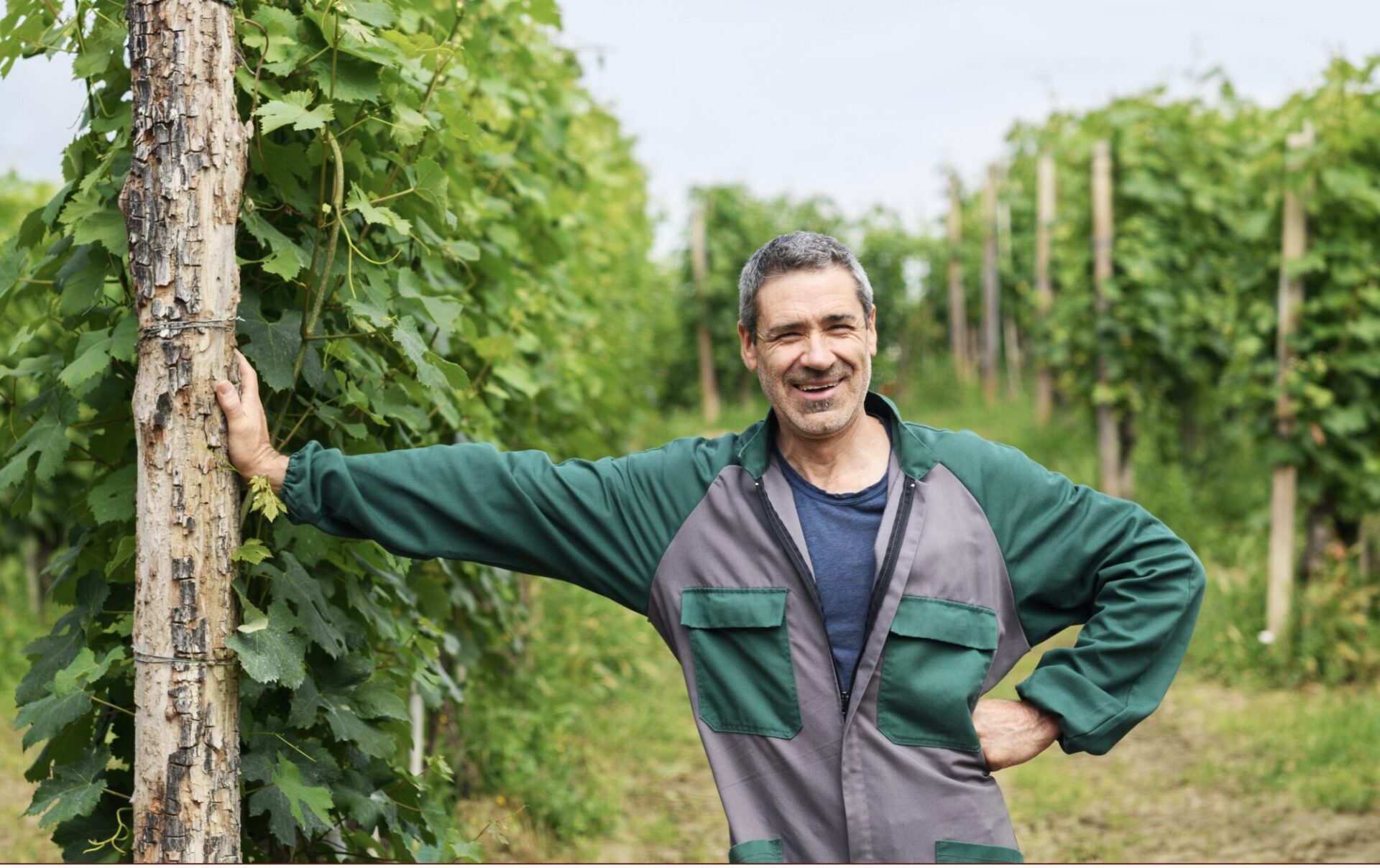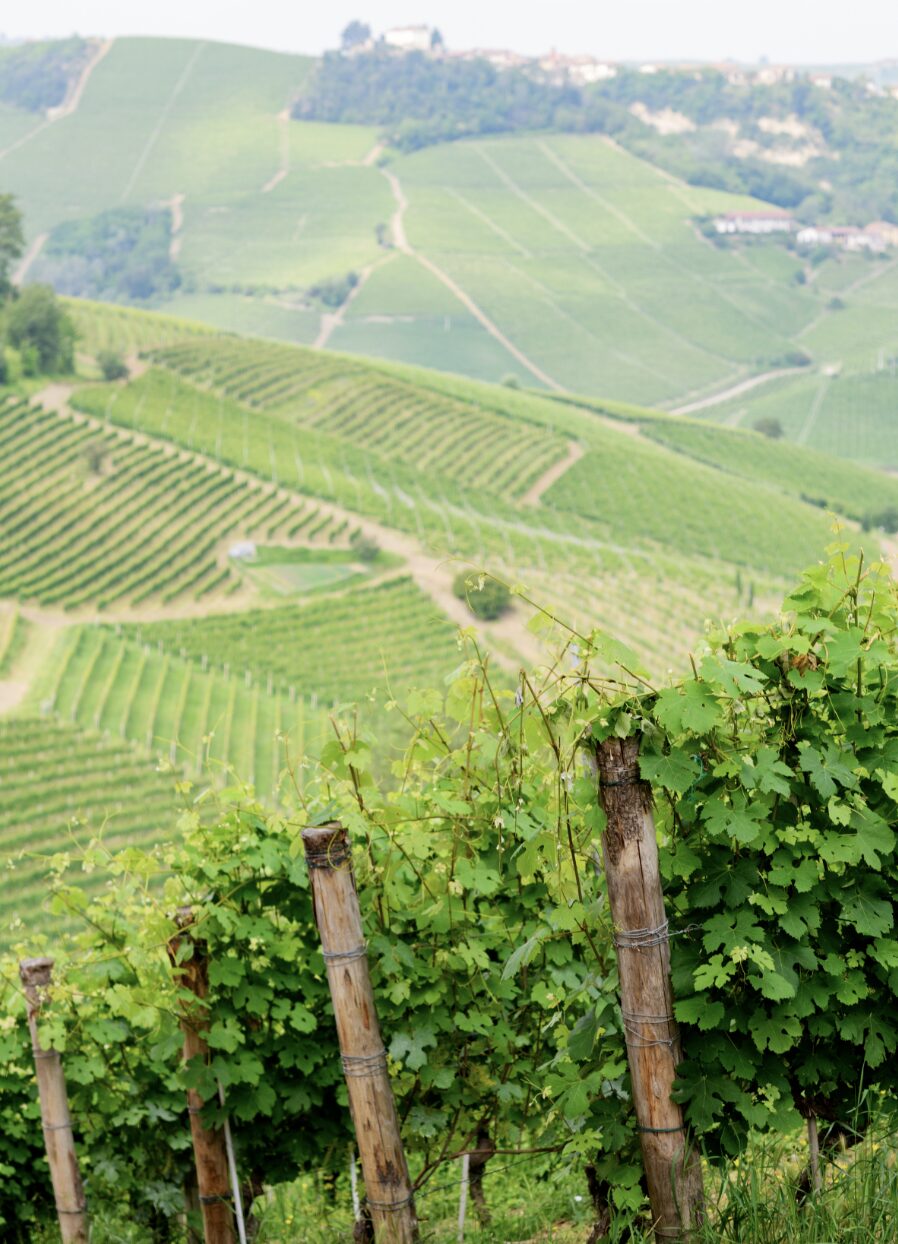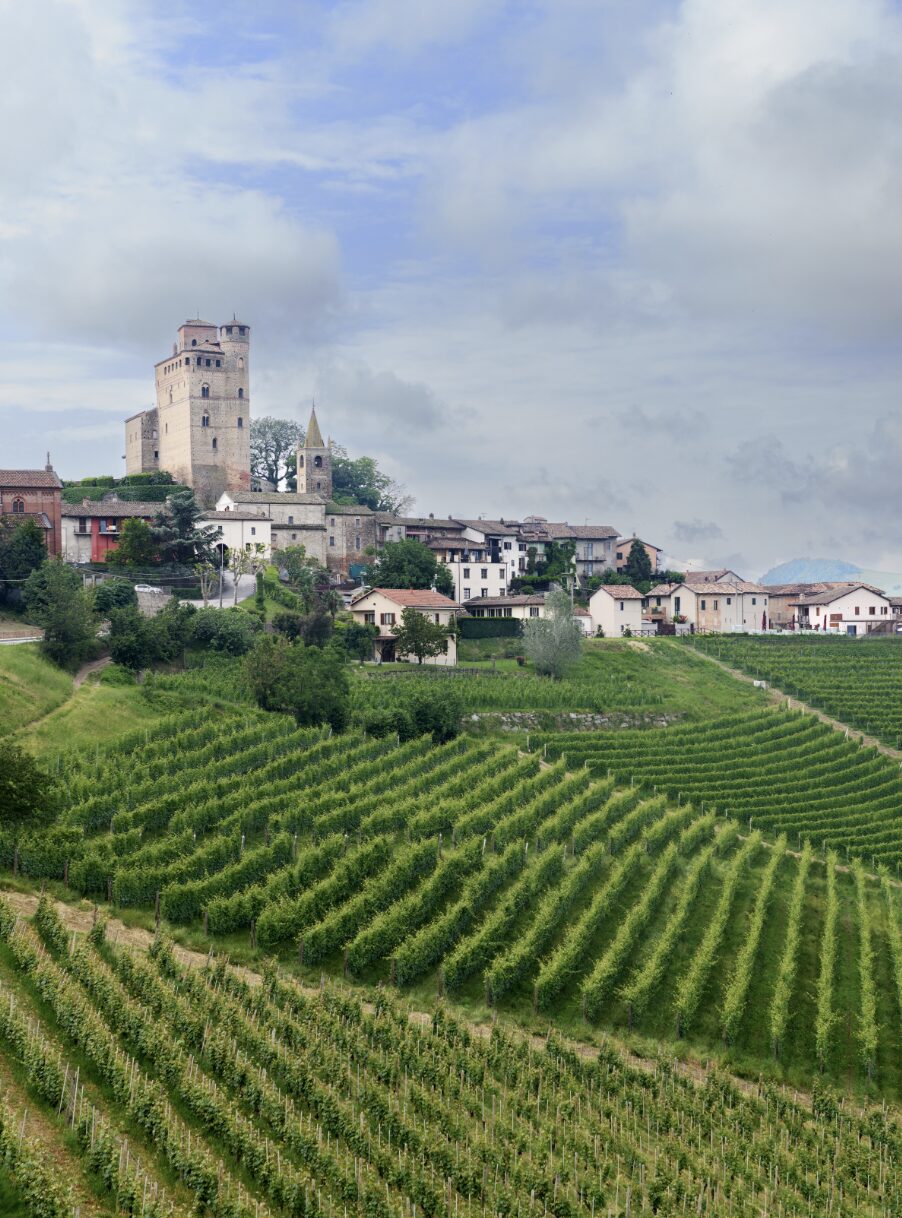2022 Guido Porro Barbera d’Alba “Vigna Santa Caterina”
The 40-year old vines for this Barbera sit in a privileged Barolo site, so there is no shortage of pedigree here. It’s a head-turning everyday pizza wine that makes you feel like you got a good deal. We love those wines. It’s also something you want to have on hand for a dinner party – and if you aren’t having pizza, enjoy it with chicken parmigiana.
Organic farming practices, hand-harvest, family-owned, native yeast fermentation, unfiltered and total production is only 3,750 cases annually (across 7 different wines).
- Tasting Notes bright blackberry, red cherry, currant, rose water, leather, mineral, clove, vanilla, velvety mouthfeel
- Variety Barbera
- Region Italy, Piedmont
- Volume 750ml
- Alcohol Volume 14.5%
- Table Talk If you like Barbera you my want to try Mourvedre next. DNA evidence suggests that Barbera is closely related to the Mourvedre grape of France and Spain. Look for a Spanish Monastrell or a French red from Bandol.
Guido Porro is a family-owned winery located in the heart of Piedmont, Italy, renowned for its dedication to traditional winemaking and the cultivation of native grape varieties. With vineyards nestled in the prestigious region of Serralunga d’Alba, the Porro family has been producing high-quality wines for generations. Their commitment to craftsmanship and respect for terroir shines through in every bottle. Reviews and notes on Guido Porro regularly refer to him as “under the radar”: the wines he makes are worthy of a stellar reputation, but he is too easygoing and unassuming to worry about whether the general wine-drinking public recognizes his name.
Sustainable Practices: Guido Porro embraces sustainable viticulture, aiming to preserve the environment and ensure the longevity of their vineyards. They employ organic farming methods, avoiding synthetic pesticides and herbicides, and focus on maintaining biodiversity in the vineyard. Their sustainable practices include minimal intervention in the winemaking process, allowing the natural characteristics of the grapes to take center stage.
Related Items
-
2018 Domaine Alain Burguet Chambertin ‘Clos de Bèze’ Grand Cru
$600.00If you know, you know. ‘Clos de Bèze’ is the most prestigious and sought-after Grand Crus in Gevrey-Chambertin. For collectors, this wine is a great investment. It will only continue to appreciate in value as it ages over the next 10-20 years.
Practicing organic viticulture, hand-harvested, native yeast fermentation, unfined/unfiltered and only 100 cases produced.
-
2020 Dr. Bürklin-Wolf Pfalz Rouge
$22.00This bottle from one of Germany’s oldest wineries, is a perfect Tuesday night wine for someone wanting to try something fun and off-the-beaten-path. Think Pinot Noir with an earthy, Syrah-like punch. Have fun with this one and pair it with dishes like assorted charcuterie or eggplant Parmigiana.
Bürklin-Wolf was the first German winery to be certified biodynamic by Biodyvin (certifier for Leflaive, Domaine de la Romanée-Conti, and 175 of the top growers across the EU). The grapes are all estate-grown fruit, hand-harvested, fermented with natives yeasts and aged for 1 year in used oak barrels.
-
2010 Casanuova Delle Cerbaie Brunello Di Montalcino Riserva MAGNUM
$325.00This wine comes from the prestigious hill of Montosoli and 2010 is widely regarded as one of the best Brunello vintages, with perfect growing conditions resulting in wines of great structure, depth, and aging potential. It is drinking really beautifully right now. No need to decant, just open 30 minutes before enjoying.
Organic farming practices, hand-harvested and 250 cases produced on average only in exceptional years.
-
2023 Domaine Garnier et Fils Chablis AOC
$36.00Chablis is a staple at Argaux. So when we decide to add a new one to the book, you better believe we have done our homework. This particular bottle was chosen after it won a blind tasting against 17 different bottles of Chablis. We invited our top Chablis clients to join us for the battle and this wine was voted #1. Enough said. It is a must-try.
Organic farming practices, native yeast fermentation, aged on the lees in stainless steel tanks for 11 months and filtered before bottling (no fining).










